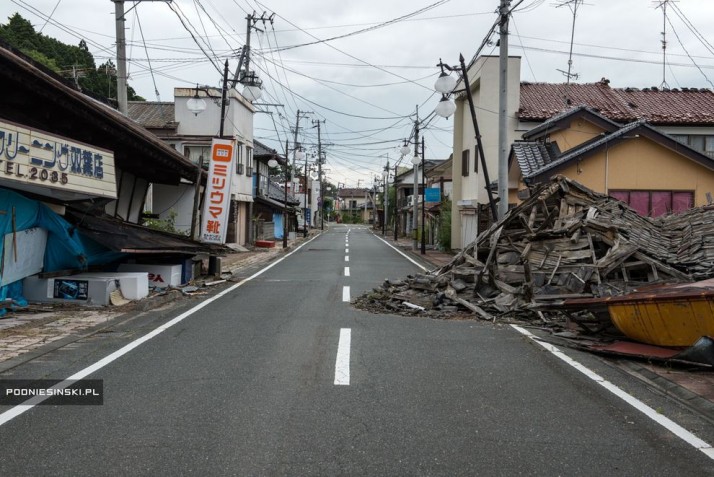800,000 people have signed a petition against the Belgian government’s nuclear policy
02/11/2016 / By Chris Draper

Germany has expressed concern about Belgium extending the lifespan of 40 year old nuclear reactors. The German city of Aachen is suing officials at Belgium’s Tihange nuclear power plant on the grounds that restarting the aging facility is dangerous.
Belgium owns two nuclear power plants at Doel, close to the port of Antwerp, and at Tihange by Liege. They have seven reactors in all, which collectively generate nearly 60 percent of the country’s energy. Over the past few years, however, multiple episodes have caused many to be skeptical about the safety of the reactors. According to the BBC, these events included:
- One of Doel’s four reactors, Doel 4, was hit by an unresolved case of sabotage
- Another, Doel 3, was shut down for 21 months after the discovery of micro-cracks in the reactor’s pressure vessels
- A few days after being restarted, Doel 3 was shut down again on New Year’s Eve after a water leak was found
- At Tihange, a fire started in the electricity supply system on 27 December
- Micro-cracks were also found in the pressure vessels of a Tihange reactor
In Tihange, operator Electrabel said an external audit had been conducted and that the structural integrity of the power plant has been assured. Regardless, this has not eased the worries of Belgium’s neighbors. Germany plans to shut down all of its commercial nuclear reactors by 2022.
A Fukushima-like disaster in Belgium
The Belgian government intended to close its oldest reactor, Doel 1, a year ago. They then decided to turn it back on and try keep the reactor running for an additional ten years.
German Environment Minister Barbara Hendricks met with Belgium’s interior minister. Hendricks insisted that a border assessment of environmental impact ought to be required for both new reactors and the reuse of old ones.
“Belgium has assured us that experts will respond to the questions from the German government in February,” she said.
Many worry that extending the lifespan of nuclear reactors increases the risk of a Fukushima-like disaster occurring in Belgium. According to Energy specialist Prof Damien Ernst from the University of Liege, “a higher risk of accident due to the presence of micro-cracks but the risk is still very low.”
“Similar cracks have been discovered in many other nuclear reactors’ vessels, including several cases in France. Some fear that the vessel would break and that of course would be a catastrophe, contaminating the soil and underground water, it would be a Belgian Fukushima.”
Thousands of people sign petition protesting extension of reactors
A report issued last month by the Federal Agency for Nuclear Control (FANC) suggested distributing iodine pills to the entire population of the kingdom, so that the tablets would be available in the event of a nuclear accident. An online petitioned from the campaign group Avaaz protesting the reactors has acquired more than 800,000 signatures.
Christoph Schott of Avaaz told sources that Belgium is placing the lives of people throughout Europe in the hands of chance.
“Belgium’s reckless plan to switch on their ageing and crumbling nuclear reactors without proving they are safe is at best dangerous and at worst deadly,” he told sources.
On the hand other, Belgian interior ministry claims they wouldn’t restart the power plant if they thought the reactors posed a threat to the general population.
Belgium’s refusal to acknowledge the risks attached to nuclear energy has caused the German city of Aachen to sue the the operators of Belgium’s Tihange nuclear power plant.
“In recent weeks, the nuclear power plants Doel and Tihange have had several hazardous incidents. People in the ‘three-country region’ [of German, Belgium and the Netherlands] are deeply unsettled and worried,” said a press release from Aachen officials.
The city plans to first bring the suit to Belgium, and then possibly sue operator, Electrabel, in EU court in Brussels.
Sources include:
(1) BBC.com
(2) RT.com
Submit a correction >>
Tagged Under:
2011Fukushimadisaster, Belgium, City of Aachen, nuclear reactor, petition, public protest, Tihange power plant
This article may contain statements that reflect the opinion of the author
RECENT NEWS & ARTICLES
COPYRIGHT © 2017 FUKUSHIMAWATCH.COM
All content posted on this site is protected under Free Speech. FukushimaWatch.com is not responsible for content written by contributing authors. The information on this site is provided for educational and entertainment purposes only. It is not intended as a substitute for professional advice of any kind. FukushimaWatch.com assumes no responsibility for the use or misuse of this material. All trademarks, registered trademarks and service marks mentioned on this site are the property of their respective owners.




















